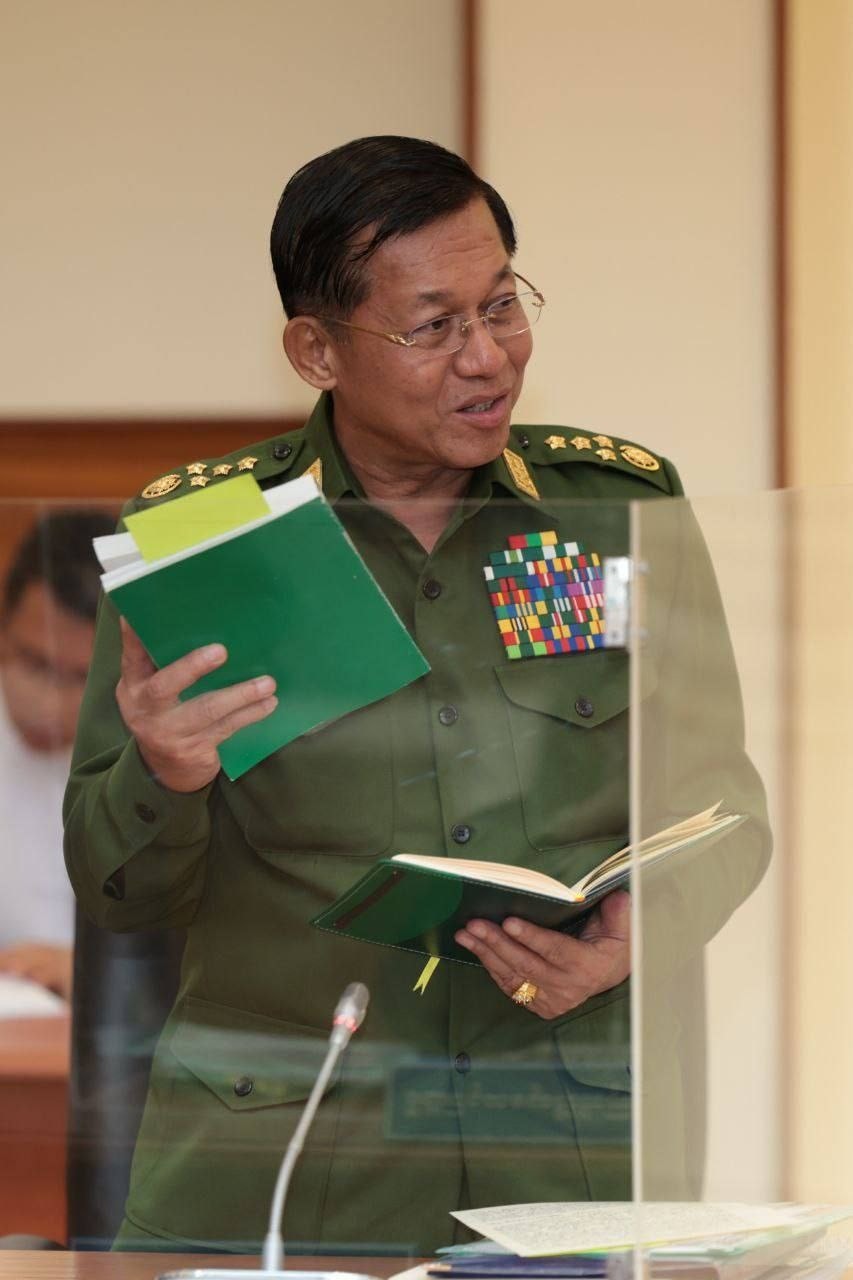Mawlameyine, 31 December
With only one month until the end of the state of emergency, it will be interesting to see how the military council, which is facing defeat, will use the 2008 Constitution to take the steps to maintain the power it has seized.
The six-month state of emergency extended at the meeting of the National Defense and Security Council held on July 31, 2023 will expire on January 31, 2024.
On the other hand, the nationwide offensive to overthrow the military dictatorship by the armed resistance forces is gradually gaining momentum and is even threatening Nay Pyi Taw, the headquarters of the military council.
After the state of emergency ends, the military council is expected to be extended for another six months, and there are reports that ethnic armed organizations have proposed for the military council to form a coalition government with EAOs and advisors from political parties.

Following the formation of the coalition government, the federal principle of national administration is presented, and ethnic groups have recommended that elections be held when the constitution has been agreed upon by all after it has been amended or repealed.
Sao Khun Sai, an adviser to the Peace Process Steering Team (PPST), which is composed of NCA-signatory ethnic armed organizations, told CNI news agency that the EAOs recommended the military council form a coalition government.
The PPST spokesperson, Colonel Saw Kyaw Nyunt, told Than Lwin Times, “There was no discussion in PPST about forming a coalition government. Which EAO said it? NCA-signatories or non-NCA signatories?
We don’t know whether it was the decision of all EAOs or whether it was suggested by the opinion of a single person.”
Colonel Saw Kyaw Nyunt noted that the formation of a coalition government is a good plan if it has the goal of overcoming the current political crisis and can be implemented through the coordination of all.
He stated that the meeting between the military council and the ethnic armed organizations could not be held until today due to the informal negotiations held on the sidelines of the NCA anniversary on October 15.
Currently, only the Democratic Karen Benevolent Army (DKBA), the Karen Peace Council (KNU/KNLA-PC), the Arakan Liberation Party (ALP), the Pa’o National Liberation Organization (PLO), and the Lahu Democratic Union (LDU) remain members of the PPST.
The military regime has prepared defenses in northern Shan State, Karenni, Chin, Rakhine, Sagaing, Bago and Karen since the end of October 2023 until now, during Operation 1027 launched by the Three Brotherhood Alliance.
Veteran politician U Pe Than said, “Because the situation in the country has not returned to normal, the military council will definitely take a six-month extension to carry out the set procedures. When the military council is facing a military crisis, whether it is to form a coalition government or to make peace, if the 2008 Constitution is abolished and the military is no longer involved in politics, the other side can respond in a positive manner.”
Some anti-regime ethnic armed organizations have expressed that they have no trust in the military council, which insists that it operates according to the 2008 Constitution and the Nationwide Ceasefire Agreement (NCA), and that there is no need for dialogue.
The military regime arrested the country’s leaders on February 1, 2021, convened National Defense and Security meeting in accordance with Article 417 of the 2008 Constitution, declared a state of emergency, and seized power for a year.
After that, the military council extended the state of emergency, which can only be extended for six months at a time, to four times according to Article 425 of the 2008 Constitution and tried to rule the country for three years.
At the National Defense and Security meeting to be convened on January 31, it remains to be seen what reasons the military council will give and how it will continue to try to grasp the country’s power.
News – Than Lwin Times
Photo- MOI

